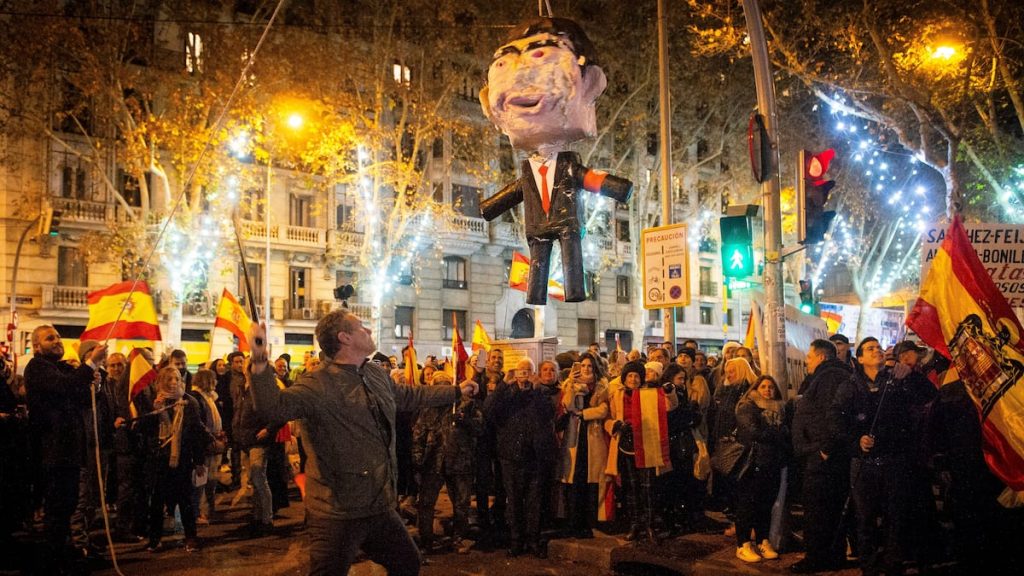Federico Jiménez Losantos, a prominent media figure on the right, published “La dictadura silenciosa” in 1993, a book illustrated with images of political figures like Felipe González, Xabier Arzalluz, and Jordi Pujol, arguing that democracy was disappearing in Spain. Recently, he released “El camino hacia la dictadura de Sánchez,” featuring current president Carles Puigdemont, Oriol Junqueras, and Arnaldo Otegi, making a similar claim. Despite 30 years passing, Losantos continues to warn about a totalitarian regime on the horizon. His influence was seen when he convinced the leader of the PP, Alberto Núñez Feijóo, to back out of an agreement with the government to renew the General Council of the Judiciary.
The use of extreme speech and a strategy of polarization have long been present in Spanish politics, with Madrid serving as a pressure cooker where politicians and media collide. While divisive rhetoric is rampant in national politics, the intense polarization is not reflected in regional elections. The confrontations within parties, such as between Madrid’s Isabel Díaz Ayuso and Andalusia’s Juanma Moreno, highlight the deep divisions. This environment of bickering and hostility seems to be contained within political and media elites in the capital, sparing regions like Galicia and the Basque Country from the same level of discord.
Political polarization is not limited to Spain but has spread across Western democracies in recent years. Spain’s deep divide between left and right, exacerbated by events like the 11-M bombings, economic crises, and the rise of new parties, reflects a broader trend in the region. The impact of social media and digital platforms in amplifying these divisions and the politicization of previously neutral bodies like the judiciary further fuel the polarization. This toxic environment has even reached instances of personal attacks on politicians, painting them as enemies of the people.
Both sides of the political spectrum in Spain accuse each other of stoking tension and resorting to antidemocratic tactics to undermine their opponents. The erosion of trust in democratic institutions and the rise of extremist parties contribute to the growing disillusionment among citizens. The lack of a centrist political force in Spain exacerbates the deep divide between left and right, with no middle ground in sight. The escalation of bitter political feuds and the demonization of opponents have led to a climate where compromise and civility in discourse are increasingly rare.
The consequences of heightened political polarization are evident in the growing distrust towards traditional democratic processes and institutions. Public confidence in political parties is at an all-time low, reflecting a general perception that politics has devolved into a shouting match devoid of meaningful dialogue. The erosion of democratic values and the allure of authoritarian models, as seen in the preference for efficient governance over democratic principles, pose a serious threat to the fabric of Spanish society. Calls for de-escalation and a return to civility in political discourse are growing louder as citizens and experts alike express concern over the future of democracy in Spain.
As Spain grapples with the challenges of political polarization and social fragmentation, the need for a renewed commitment to democratic values and principles becomes ever more pressing. Leaders on all sides of the political spectrum must prioritize dialogue, compromise, and respect for democratic norms to rebuild trust in the political system and ensure the stability and prosperity of the country. Only through a concerted effort to bridge divides, foster understanding, and promote inclusivity can Spain overcome the current crisis of confidence and chart a path towards a more united and resilient future.















